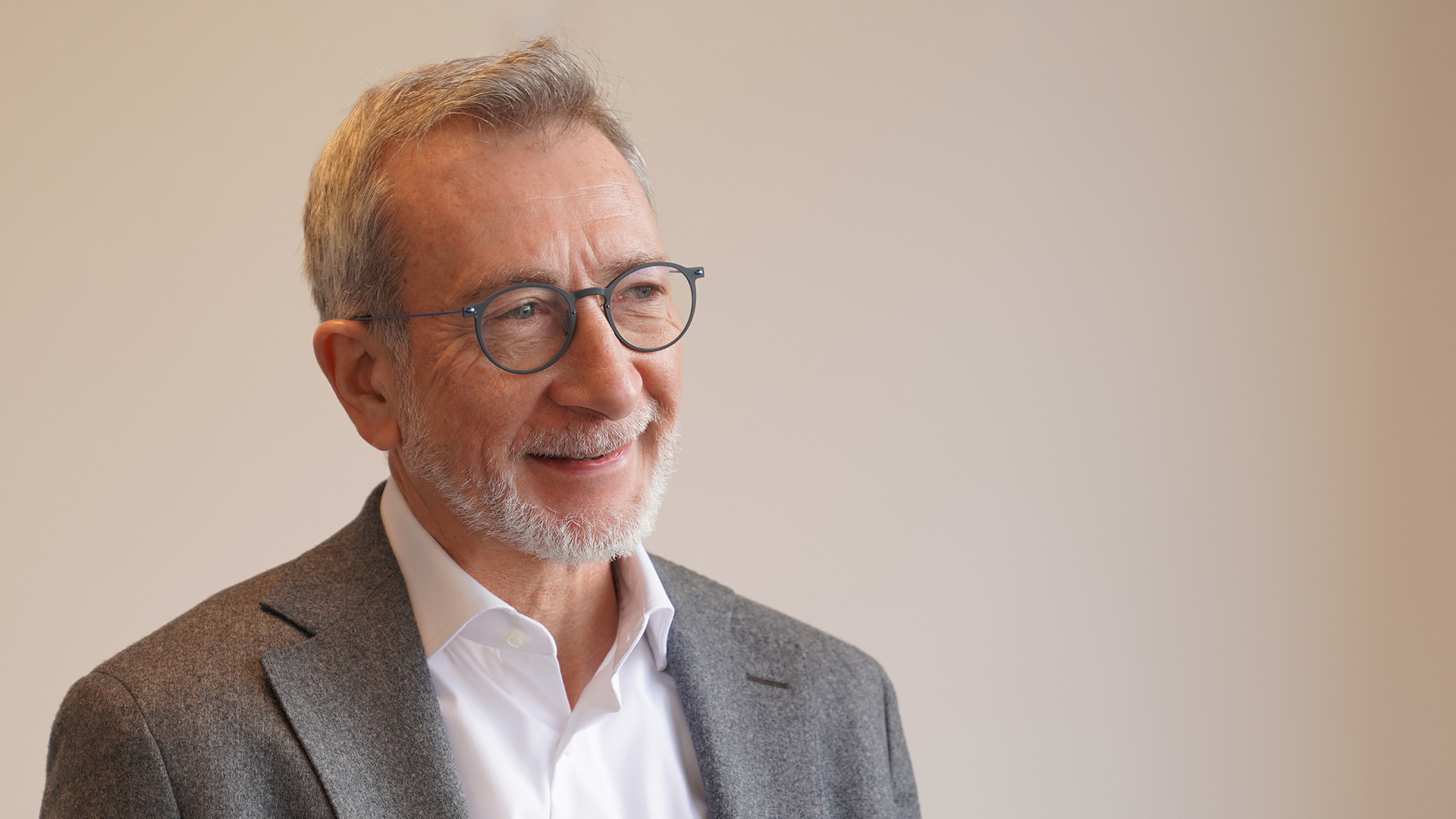Denis Lacombe, CEO of the EORTC, explains the importance of patient-centric clinical research in cancer treatment and the commitment of the organisation to improving quality of life.
Cancer treatment has long been a challenge in the field of medicine, but it is one the world continuously rises to with innovative and persistent research dedicated to solutions.
At the European Organisation for Research and Treatment of Cancer (EORTC), the mission is to improve cancer patients’ survival and quality of life. The EORTC is a non-governmental organisation, utilising 60 years of experience to run an extensive, international academic programme spanning over 30 countries.
The Innovation Platform Editor Maddie Hall sat down with Denis Lacombe, CEO of the EORTC, to discuss the organisation’s dedication to patient-centric clinical research and the pragmatic clinical trials that are transforming the future of cancer treatment.

Objectives of the organisation
The primary objective of the EORTC is to leave no one behind. As such, the organisation addresses clinical situations that have been comparatively neglected, such as rare cancers or elderly patients. We are also unique in our attempt to tackle a large variety of different cancers in different organs.
Our scientific strategy centres around treatment, choosing to maximise our expertise in this area while other organisations focus on cancer prevention and early detection. Through multidisciplinary clinical trials, we take a comprehensive approach to cancer treatment, addressing drugs, radiation, surgery, and the research fundamental to each, establishing EORTC as Europe’s largest cancer clinical trial organisation.
Ongoing and recent projects
At any given time, EORTC runs over a hundred clinical cancer trials, meaning that we are consistently watching a clinical trial mature and come to fruition. Whether this is by improving our knowledge of a specific cancer or directly informing doctors and patients about changing treatment, the organisation is continually advancing the standard of patient-centric care.
There are about ten clinical trials and other programmes supported by the European Union (EU) at any time. EORTC does not receive structural support from the EU but applies on a competitive basis.
One ongoing programme that is proving hugely successful is IMMUcan, which is geared to access the biological material of approximately 3,000 cancer patients with five different types of cancer. IMUCAN aims to use this data, alongside innovative technology,
to understand the microenvironment of cancer cells.
Three pragmatic trials have recently been approved under the Horizon programme: A large clinical trial addressing brain tumours, retroperitoneal sarcoma, and the optimisation of hormone therapy for metastatic prostate cancer. These initiatives aim to address patient-centric clinical questions. Increasingly, trials are considering quality of life, patient-reported outcomes, and even patient preferences as an objective.
Treatment optimisation and pragmatic trials
The optimisation of treatments is a significant part of our current research strategy. When a drug comes to the market, it is not apparent which patients would benefit from the treatment and which would not. Similarly, the optimal dose, duration, or how to integrate it best in existing treatment approaches may not yet be documented or fully informed. Consequently, much research is needed on how treatments can be optimised to avoid unnecessary toxicity without benefit. The substantial costs of cancer treatments are relevant in this respect, as effort should be taken to ensure that collective resources are not spent on treating a patient unduly with a drug used, for instance, at a dose with more toxicity than necessary. EORTC is taking a de-escalation approach, addressing overtreatment, and decreasing toxicity to improve patient quality of life. We are increasingly attempting this in the context of pragmatic clinical trials. For instance, we are discussing with stakeholders and regulators the potential to adopt a more economical and efficient approach to data collection, allowing us to collect and analyse only the side effects of relevance.
Treatment optimisation is patient-centric; since we are not assessing drugs’ efficacy but aiming at obtaining a more favourable ratio between benefits and risks, the eligibility criteria for pragmatic clinical trials are much broader and closer to the real-world experience of treating the patient population. These trials do not
intend to register a treatment or establish a new therapeutic system. Instead, they aim to inform doctors, patients, and healthcare systems how best to utilise therapeutic interventions. This allows us to ask pragmatic questions like:
• Can we reduce the dose?
• What is the optimal duration of treatment?
• Can this be part of a combination treatment?
More specifically, rare and ultra-rare cancers are also often unaddressed, and trial designs have adapted to such clinical situations. A lot of methodological research is required to assess the practicalities.
The question of feasibility is also a high priority at EORTC since these pragmatic trial programmes run differently from the classic regulatory trials. This is a factor that we have consistently discussed with international partners, such as the National Cancer Institute (NCI) in the US, as well as the European Medicine Agency (EMA). The result has been the creation of the Cancer Medicines Forum, a partnership between EMA and EORTC designed to consider the optimisation of new anticancer agents beyond their licensing. It helps discuss with all stakeholders, including the commercial sector, as EORTC considers treatment optimisation a spectrum that should be addressed comprehensively and where the commercial sector can target some of the optimisation questions concerning a treatment from its inception.
Embracing new technologies to improve patient-centric care
An essential aspect of EORTC is our multidisciplinary approach, meaning we have services dedicated to technological research. A recent focus has centred around imaging technology, with our imaging platform enabling us to conduct specific research on the backbone of our pragmatic clinical trials and garner the information we need to specialise in cancer treatment.
The advantage of pragmatic trials is that, though we aim for as realistic an environment as possible, it remains controlled. Consequently, we retain the ability to control the data and the quality. This allows us to learn and understand new technologies, how they
work, and eventually, how they can be modified for tailored treatments.

Embracing new technologies requires collaboration with the technology industry. We are currently collaborating with a technology company on a minimal residual disease programme. When a disease has not yet metastasised, there are still circulating cells and DNA; this programme aims to identify these as soon as possible to orient treatment. Our role is to validate the new approaches developed from clinical research to test their utility and, ultimately, their clinical relevance.
Global partnerships
The organisation is, in itself, already an international collaboration with extensive reach. Historically, EORTC has coordinated large global trials in partnership with organisations with a similar independent agenda. We have a long history of collaboration with organisations such as NCI), with whom we are currently joining forces to conduct the aforementioned trial on retroperitoneal sarcoma.
Thanks to global partnerships, conclusions can be drawn much faster, enabling quick access to a large pool of patients. They grant us insight into research from all over the world, with multiple investigators searching for solutions at once, making programmes scientifically richer and more relevant.
Similarly, EORTC has had several very successful collaborations with clinical trial groups in Canada, Australia, and Japan. Each has been an incredibly enriching experience; programmes are typically embraced by the majority, indicating the importance and relevance of the research. These global partnerships create a healthy learning environment, sharing culture, language, and cancer treatment standards.
For instance, we have an extensive fellowship programme, welcoming fellows from across the globe to spend up to three years in our Brussels office. Fellows join us, transfer knowledge, and learn about clinical research in our clinical environment. These fellows facilitate many of the programme’s successes, possessing a detailed understanding of our capacities and limitations, as well as improving future collaboration.
We join forces internationally, not only to coordinate specific clinical trials but also to conduct methodological research programmes, where we address questions such as: How could we do that better? For 20 years, EORTC, the NCI, and the clinical trial group in Canada have partnered on the RECIST programme. This aims to assess the efficiency of anticancer agents and how we can measure tumour shrinkage. Global partnerships such as this represent to the majority of the oncology community that we can conduct excellent methodological research, but clinical research that is trustworthy for future applications
by others.
Alongside the clinical and methodological partnerships, we work with other organisations on cancer policy. Collaboration is a significant branch of EORTC, stimulated in every area of cancer treatment with which we engage. There is so much more that can be achieved when organisations join forces and compile resources; this is how we ultimately affect change.
EORTC in 2024: Prioritising patient-centric care
Our primary objective is to continue delivering this multidisciplinary clinical trial agenda for patients and doctors. In challenging times, with regulation changes and an unstable economic environment, we must continue prioritising patient-centric care. The effects of the Coronavirus pandemic persist, so EORTC aims to maintain this independent agenda and ensure our sustainability through fundraising and continued application for EU grants.
On 5 April 2024, we are holding a workshop about treatment optimisation at the EMA. We hope events such as these, combined with our global partnership, will increase the visibility of this concept and enable us to work with stakeholders on new cancer policies.
In particular, we would like to address how to better care for rare and ultra-rare cancer patients, recognising the challenges this patient population faces in accessing new drugs and treatments rarely registered for them. This will be an essential priority in 2024 and beyond in our attempt to solve this unmet need.
Europe is ageing, and cancer remains primarily a disease affecting the second half of life. Thus, an essential aspect of our current and future scientific strategy will concern elderly patients. Drugs are developed to treat the average adult patient population, meaning we lack the data on how to treat the elder stages of life. In some years, we will take their place; we must understand how to treat our parents, grandparents, and eventually ourselves efficiently.
EORTC is striving for the future of cancer treatment. As an organisation, we place significant emphasis on the next generation of clinical investigators, with the expertise and the facilities to provide an environment that can teach the skills not taught at medical school. Through courses, conferences, and workshops, we aim to establish the future generation of scientists and enable them to begin their careers with a pre-existing level of understanding.
Please note, this article will also appear in the seventeenth edition of our quarterly publication.









